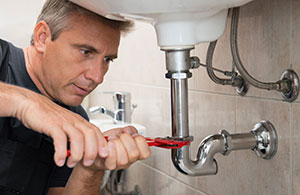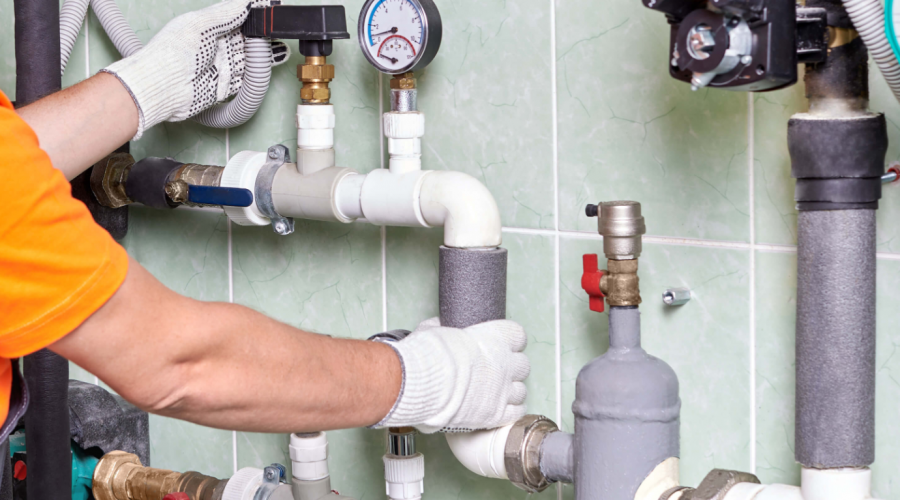Urgent Repair Tips to Follow Until Professional Help Arrives
Urgent Repair Tips to Follow Until Professional Help Arrives
Blog Article
This article directly below in relation to Plumbing Emergencies: Tips on What To Do Before is particularly informative. Read it yourself and decide what you think of it.

Plumbing emergency situations can strike any time, triggering tension and possible damage to your home. Whether it's a burst pipeline, a clogged drain, or a leaking faucet, recognizing how to handle the circumstance till a professional plumber shows up can conserve you from additional difficulties. This short article gives necessary emergency pipes tips to assist you minimize damages and restore control throughout a plumbing dilemma.
Switch off the Supply Of Water
The first step in any type of pipes emergency is to turn off the water supply. For local issues, such as a dripping faucet or commode, shut off the shutoff near the fixture. When it comes to a major leakage or burst pipeline, locate your home's major water shut-off valve and transform it off instantly. Recognizing the area of these valves ahead of time can save useful time during an emergency situation.
Address Small Leaks with Short-lived Repairs
Tiny leaks can swiftly become considerable troubles if left unattended. Make use of these temporary solutions until specialist assistance gets here:
While these fixes aren't long-term, they can help decrease water loss and damage.
Unclog Drains Pipes Safely
A clogged up drain can be an aggravating and unpleasant issue. Below's exactly how to tackle it:
If these approaches do not work, stay clear of utilizing excessive pressure, as it may worsen the clog.
Manage Overflowing Toilets
An overruning bathroom can cause prompt mayhem. Below's what you must do:
Shut down Your Hot Water Heater
In certain emergencies, such as a ruptured pipeline, it's a good idea to turn off your hot water heater. This avoids getting too hot or damage to the system when water quits moving. Turn off the power supply to the water heater (electrical or gas) and allow it cool down to prevent possible threats.
Momentarily Stop a Burst Pipeline
A ruptured pipeline can cause considerable water damages in mins. To minimize the issue:
Call a professional plumber instantly to address the trouble completely.
Manage Frozen Pipes Meticulously
In cooler environments, icy pipelines are an usual emergency. If you believe a frozen pipeline:
Avoid More Damage
Taking fast action to reduce damage can conserve you money and time over time. Right here's just how:
. Have an Emergency Situation Plumbing Set
Prepare a standard pipes emergency situation package to deal with small concerns properly. Your package must consist of:
Having these devices handy can make a considerable difference in your capability to take care of emergency situations.
Know When to Call a Professional.
While quick fixes can assist briefly, particular plumbing concerns need instant expert interest. Call a plumbing professional if:.
Immediately calling a professional guarantees the issue is resolved properly and stops more issues.
Verdict.
Plumbing emergency situations can be overwhelming, however with the ideal understanding and tools, you can handle the circumstance properly until help arrives. By shutting off the water, resolving tiny leakages, and making use of short-lived fixes, you can reduce damage and keep your home safe. Keep in mind, these tips are momentary remedies; always seek advice from a qualified plumbing professional to deal with the origin of the trouble. Prep work and quick thinking are your finest allies in any kind of plumbing emergency.
8 Helpful Tips for Managing Plumbing Emergencies at Home
If your plumbing system hasn’t failed once, wait for it because almost everyone has a story to tell. Sometimes, it could be simple emergencies such as a leaking pipe, a blocked cistern, or even a big burst pipe. In situations like this, you need to have some handy tips to save you some money and from possible damages.
Take care of minor issues early.
Sometimes, you could have avoided an emergency by taking proactive measures while it was still early. Some major plumbing emergencies can be a result of an ignored minor issue. We recommend that you have items like plumbing tapes and other related items. A plumbing tape can allow you to manage minor leaks before the plumber arrives.
Cut off the water supply.
This tip is essential in almost any type of leakage problem. For problems like minor leakages in the toilet or kitchen, turn off the supply that takes water to the affected pipes. If the leakage is a major pipe, you must shut off the supply valve to the entire building. This will help you avoid flooding your home and neighbors if you share a flat.
Know your plumbing system
Folks typically move into a new apartment without understanding the water supply around the building. This can prove disastrous if a water emergency arises and the plumber is far away. The previous tip will prove useless if you don’t practice this one. More importantly, know where your water shut-off valve is located – you’ll need that knowledge to prevent potential home floods.
Have some common handy tools
There are lots of plumbing emergencies that you can handle without hiring a plumber. That’s why you must keep some tools available always. Some tools that you can use to fix simple plumbing emergencies easily include plumbing tapes, screwdrivers, thread seal tapes, plungers, pliers, tape measures, and rubber gloves.
Insulate your pipes from cold
You’ll save yourself from many plumbing expenses if you protect your water pipes from the cold. This is because of the harmful effects that cold weather can have on your pipes. During winter, your pipes can burst from being overly expected to freezing temperatures. So, make sure insulators are there to keep the pipes working correctly.
Avoid practices that will clog your toilet.
Many people indulge in practices that can damage the plumbing system of the entire building. One of these is when they use their toilet to dispose-off garbage. They flush all kinds of things, such as paper towels, bandages, hairs, female sanitary products, etc., down the toilet. This will block your toilet in the long run, incurring unnecessary expenditures. Dump such waste in the trash instead.
Check your dials regularly.
Sometimes, there could be leakages in your home without noticing them in time. So, constantly monitor your water meter dial. If the dial is reading when there is nobody using water, this is an indicator that there is leaking. Check for leaks immediately. Call a plumber as soon as possible if you can’t find any.
https://www.constructionplacements.com/8-helpful-tips-for-managing-plumbing-emergencies-at-home/

We hope you enjoyed reading our excerpt on What to Do During a Plumbing Emergency. Many thanks for taking the time to read through our posting. Please take the time to distribute this content if you appreciated it. Thank you so much for your time invested reading it.
Source This Article Report this page